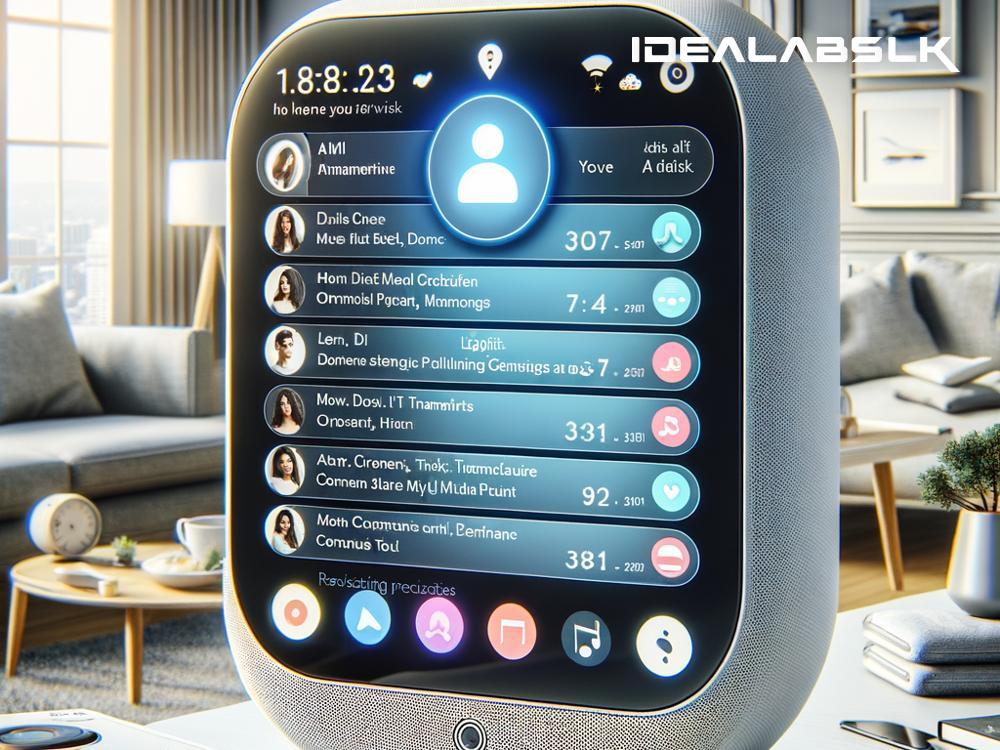How AI Enhances Multi-User Support in Smart Home Hubs
Living in the 21st century has its perks, especially when we talk about smart homes. Imagine a house that knows you — not just you, but every person living in it. It knows when to dim the lights, play your favorite music, or adjust the temperature just the way you like. This isn't a scene from a futuristic movie. It's the reality offered by smart home hubs, made smarter with the help of Artificial Intelligence (AI).
In homes where multiple people reside, catering to each one's preferences can be a challenge. That's where AI steps in, transforming smart home hubs into intelligent beings capable of understanding and adapting to the needs of every individual in the household. Let's unravel how AI is shaking things up in the world of smart homes, making them even more personalized and intuitive.
Personalized Experiences for Everyone
Gone are the days when smart homes operated on a one-size-fits-all approach. AI enables smart home hubs to recognize who is interacting with them. Whether it's through voice recognition or other smart detection methods, AI can identify different users and tailor the home environment to suit their preferences. For example, when you walk into the house, the AI can play your favorite playlist, while for your partner, it might display the news on the smart TV.
Learning and Adapting to Routines
AI is not just about recognizing different users but also learning from them. Smart home hubs powered by AI analyze daily routines and habits to adapt the home's settings automatically. If you always dim the lights at 8 PM, the system learns and eventually starts doing it for you. It can even remind you of tasks or adjust the thermostat based on the time of day and who is at home, making life more convenient.
Seamless Multi-User Support
One of the biggest challenges in households with multiple occupants is managing everyone's preferences without constant manual adjustments. AI simplifies this through sophisticated algorithms that balance everyone's needs. If one person likes the living room cooler while another prefers it warmer, AI can find a happy medium. It can also manage schedules, ensuring that the house adjusts according to who's currently home and their personal preferences.
Enhancing Security and Safety
AI enhances the security features of smart home hubs by recognizing the residents and distinguishing them from visitors or intruders. With facial recognition or other biometric technologies, the system can alert you if someone unfamiliar is in the house or if a usual resident hasn't come home at their regular time. It's like having a vigilant guardian that ensures the safety and security of all household members.
Simplifying Life Through Voice Commands
Voice assistants have become an integral part of smart homes, and AI makes them even more efficient. They can understand and process requests from different users, even if they speak differently or have unique accents. This multi-user support extends to understanding the contexts of various requests, making interactions smoother and more natural.
Future Prospects
The potential for AI in enhancing multi-user support in smart homes is vast. We're looking at a future where smart homes could predict needs before we even articulate them, based on historical data and behavioral patterns. They could also better manage energy consumption, reducing waste by understanding when and how different household members use electrical devices.
Conclusion
AI is revolutionizing the way we interact with our homes, turning them into responsive environments that cater to the unique needs of every individual. As technology advances, we can expect even smarter homes that understand us better than we might understand ourselves, making our living spaces not just houses, but true homes. The blend of AI and smart home hubs promises a future where everyone in the household feels understood and catered to, making daily life seamless, more secure, and personalized to an unprecedented level. The smart home is no longer a mere concept; with AI, it’s a reality that’s continuously evolving, adapting, and enhancing the lives of all its inhabitants.
So, as we move deeper into the era of smart living, let’s embrace the changes AI brings to our doorsteps—making our homes smarter, more intuitive, and uniquely tailored to fit the lives of every person under its roof. The future of living is not just smart; it's AI-smart.

